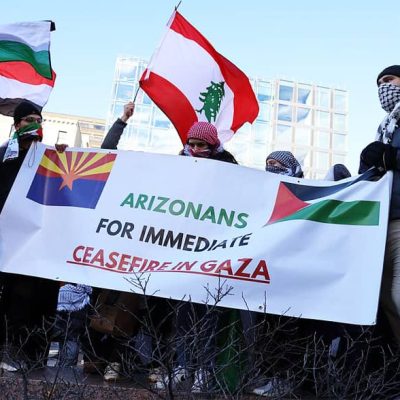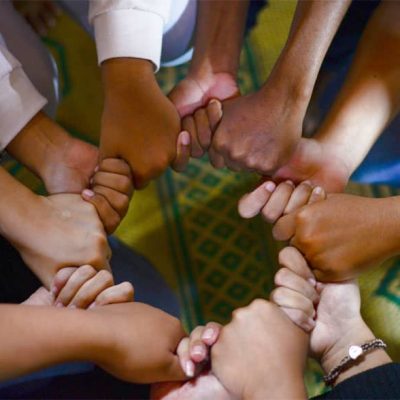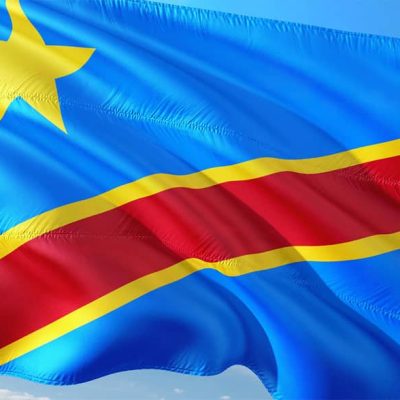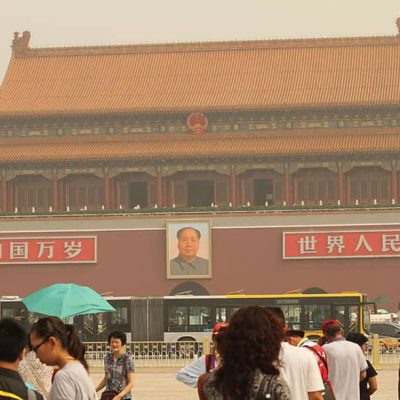 Apelaciones
Apelaciones
Las mujeres y el gobierno mundial.
Ciudadanos del mundo: las mujeres estadounidenses y el gobierno mundial. (Filadelfia. University of Pennsylvania Press, 2022, 238 págs.)
Como Lucia Ames Mead, una de las nueve mujeres destacadas en este estudio, escribió en 1904:
“No está muy lejos la década en que encontraremos que el organismo más grande al que le debemos lealtad no es Estados Unidos, sino el gran mundo: somos ante todo ciudadanos del mundo, ante todo miembros de la humanidad”.
Entre 1900 y 1950, muchas mujeres políticamente activas en los Estados Unidos abogaron por una mayor integración geopolítica para poner fin a la guerra. Argumentaron que la creciente interdependencia global exigía tanto la cooperación gubernamental como un compromiso más amplio con la comunidad internacional.
Todas estas mujeres apoyaron y trabajaron para varias medidas para promover el estatus político, legal y económico de las mujeres. Todos creían que las mujeres tenían el derecho y la responsabilidad de participar en el escenario mundial en igualdad de condiciones con los hombres. Sentían una responsabilidad con la gente del mundo y con las generaciones futuras de inaugurar mecanismos que pusieran fin a la guerra.
Megan Threlkeld.
Como enfatiza Megan Threlkeld; estas nueve mujeres no estaban simplemente promoviendo un sentido abstracto de unidad entre toda la humanidad. Exigían participar en la formación de una política global real y tangible.
Creían que un organismo internacional estructurado con autoridad y poder era un requisito previo para una paz duradera entre las naciones y una mayor igualdad entre los seres humanos. Muchos apoyaron a la Liga de las Naciones y luego a las Naciones Unidas como primeros pasos necesarios hacia un gobierno mundial genuino.
Como escribió Conor Cruise O’Brian en The U.N. Sacred Drama:
“La Asamblea General es el foco principal del poder que reside en las Naciones Unidas: poder moral, imaginativo y religioso. No es que la Asamblea sea, en sí misma, especialmente moral, imaginativa o religiosa, sino que las cualidades humanas correspondientes actúan y a través de de formas sorprendentes e impredecibles”.
Las nueve mujeres creían que el objetivo principal de cualquier institución internacional era poner fin a la guerra y, como ciudadanas del mundo, eran responsables de promover ese objetivo. Querían un sistema global en el que la política mundial no se lleve a cabo mediante la fuerza y la coerción, sino mediante la negociación y el compromiso.
Todos pusieron énfasis en la educación para la ciudadanía mundial. Fannie Fern Andrews desarrolló un plan de estudios de escuela primaria para la ciudadanía mundial basado en educar a los niños sobre sus responsabilidades en el hogar, la ciudad, la nación y el mundo.
El excelente estudio de Megan Threlkeld es un fuerte recordatorio de que la ciudadanía mundial ha conservado su tremendo poder para inspirar a las personas a desarrollar prácticas justas y pacíficas.
René Wadlow, Presidente, Asociación de Ciudadanos del Mundo.
Creditos:

President, Association of World Citizens (AWC).
Estudied International relations in The University of Chicago.
Estudied Special Program in European Civilization en Princeton University
Aquí hay otras publicaciones que pueden ser de su interés.
Burma’s Crumbling Junta
February first marked the anniversary of the military coup which overthrew the government of Aung San Suu Kyi in 2021. She was in practice the leader of the government but…
Preventing the Expansion of the Gaza Conflict: Are Peace Brigades a Possibility?
Antony Blinken, the U.S. Secretary of State, has been again in the Middle East working to prevent the violence of the Gaza Strip of spreading to much of the area. …
World Citizens Call for an Inmediate End to Hostilities between Israel and Hamas, and for a Genuine Peacebuilding Effort in the Middle East.
Featured image: The impact of the Israeli bombing on a civilian building in Gaza (2021). By Osama Eid, CC BY-SA 3.0 https://creativecommons.org/licenses/by-sa/3.0, via Wikimedia Commons. The AWC, a Nongovernmental Organization…
World Humanitarian Day: A Need for Common Actions.
Featured Image: Photo by Wylly Suhendra on Unsplash. The United Nations General Assembly has designated 19 August as “World Humanitarian Day” to pay tribute to aid workers in humanitarian service…
Peace Planners: Awake!.
Featured Image: Photo by Eddie Kopp, Unsplash. The recent NATO Summit in Vilnius is an indication that the war planning community is busy at work in the spirit of Von…
Track Two Efforts Needed to Reduce China-India Frontier Tensions.
Featured Image: Arunachal Pradesh – India. Photo by Unexplored Northeast, Unsplash. There has been a constant buildup of military forces by the governments of both India and China along their common frontiers. …
Democratic Republic of Congo: Sky Getting Darker.
Photo by jorono, Pixabay. The armed conflict in the eastern area of the Democratic Republic of Congo (RDC) on the frontier with Rwanda seems to be growing worse and is…
World Refugee Day.
June 20 is the United Nations (UN)-designated World Refugee Day; marking the signing in 1951 of the Convention on Refugees. The condition of refugees and migrants has become a “hot”…
4 June: Memories of Tiananmen Square.
4 June makes the security forces in China somewhat uneasy, especially in Hong Kong where, in the past, there were large memorial meetings tp remind people of 4 June 1989…
International Day of the Oceans.
Featured Image: Photo by Marek Okon, Unsplash. Progress on Asian Maritime Delimitations Needed. 8 June has been designated by the United Nations General Assembly as the International Day of the Oceans to…









